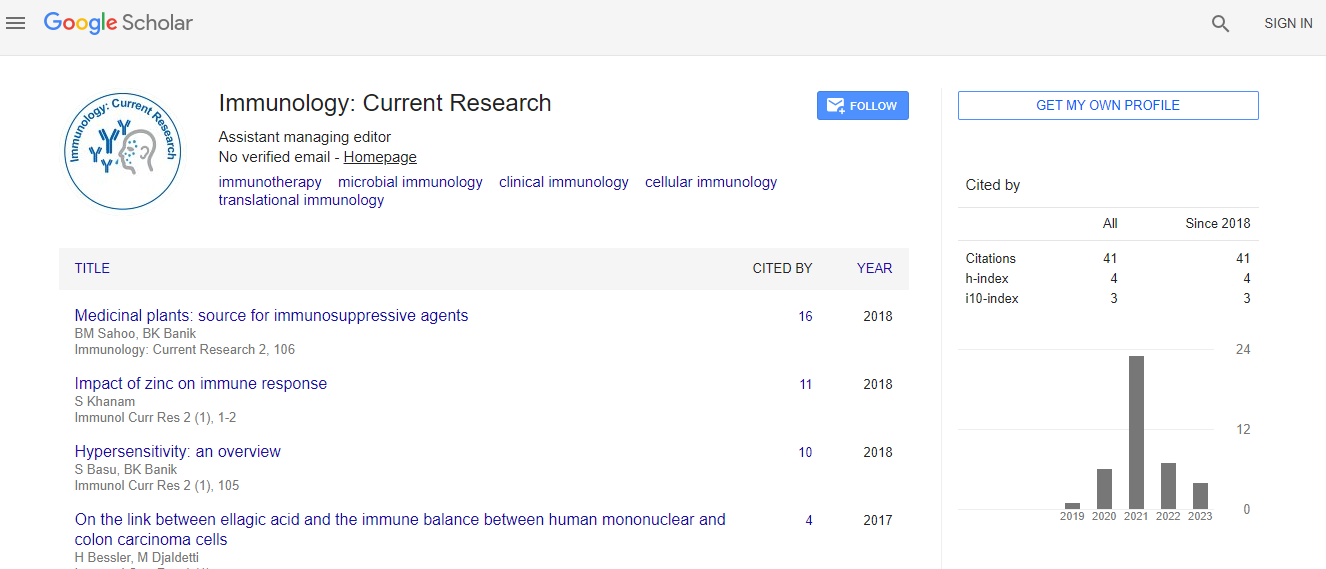Advancements in Antibody Engineering for Targeted Therapy in Cancer and Infectious Diseases
*Corresponding Author:Received Date: Jan 01, 2025 / Accepted Date: Jan 31, 2025 / Published Date: Jan 31, 2025
Citation: Tanaka Y (2025) Advancements in Antibody Engineering for TargetedTherapy in Cancer and Infectious Diseases. Immunol Curr Res, 9: 236.DOI: 10.4172/icr.1000236
Copyright: © 2025 Tanaka Y. This is an open-access article distributed under theterms of the Creative Commons Attribution License, which permits unrestricteduse, distribution, and reproduction in any medium, provided the original author andsource are credited.
Abstract
Antibody engineering has revolutionized the treatment of cancer and infectious diseases by enabling the
development of highly specific therapies with improved efficacy and reduced side effects. Recent advancements in
antibody engineering have led to the creation of monoclonal antibodies (mAbs), bispecific antibodies, antibody-drug
conjugates (ADCs), and chimeric antigen receptor T-cell (CAR-T) therapies, all of which offer targeted approaches
to treating complex diseases. In cancer, engineered antibodies can enhance immune responses by targeting tumorspecific antigens or modulating immune checkpoints, while in infectious diseases, antibodies can directly neutralize
pathogens or prevent infection. The optimization of antibody affinity, stability, and half-life has further improved
their therapeutic potential. Additionally, novel techniques such as phage display, CRISPR-Cas9, and deep learning
algorithms are being used to design next-generation antibodies. This review summarizes the current state of antibody
engineering, explores its clinical applications, and discusses challenges and future directions in the field. Antibodybased therapies are shaping the future of precision medicine and providing hope for the treatment of previously
intractable diseases.

 Spanish
Spanish  Chinese
Chinese  Russian
Russian  German
German  French
French  Japanese
Japanese  Portuguese
Portuguese  Hindi
Hindi 
